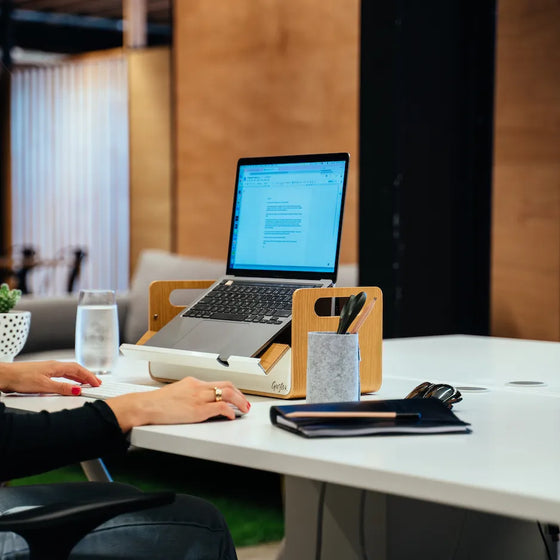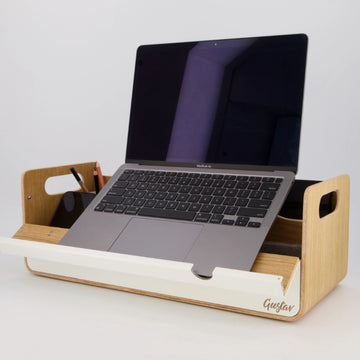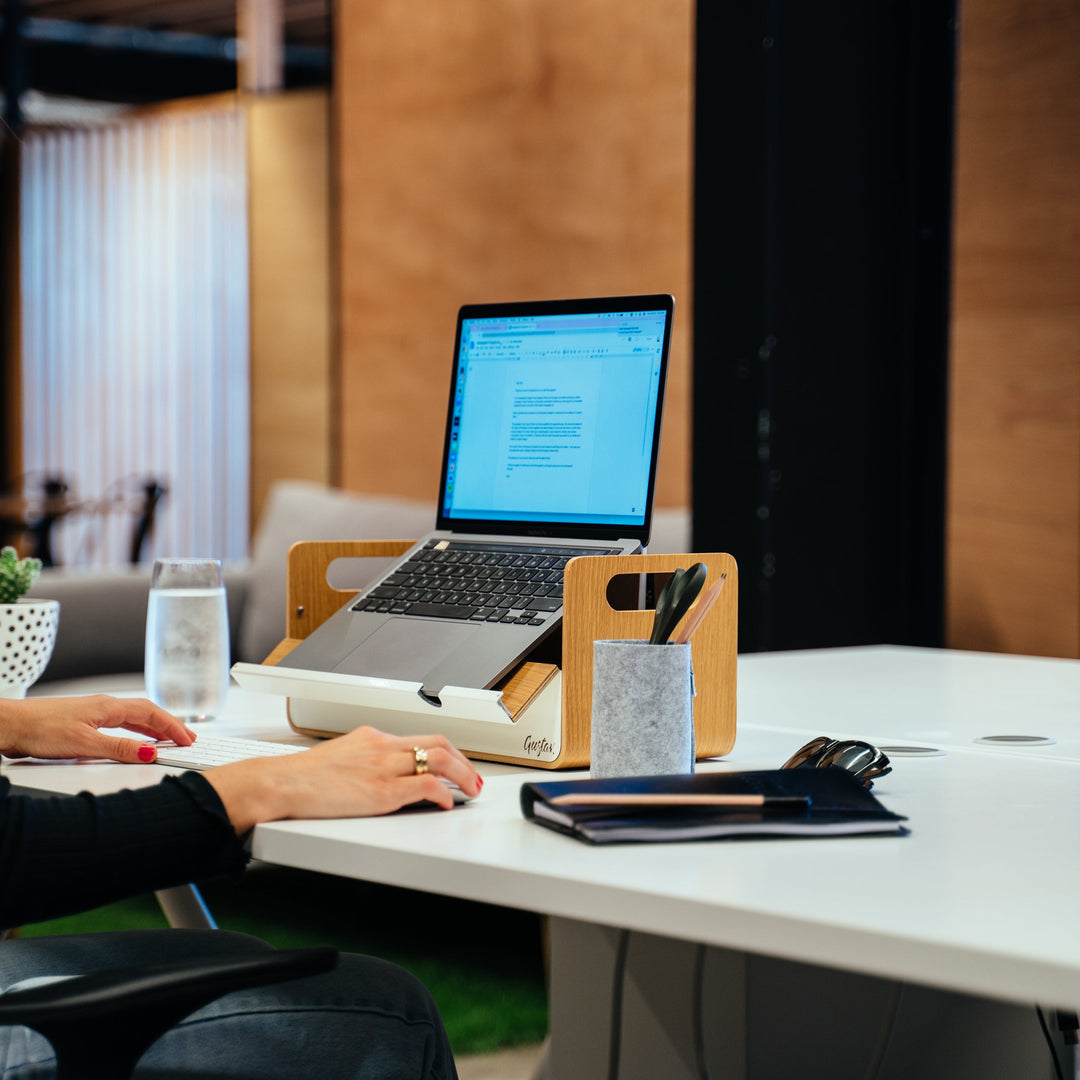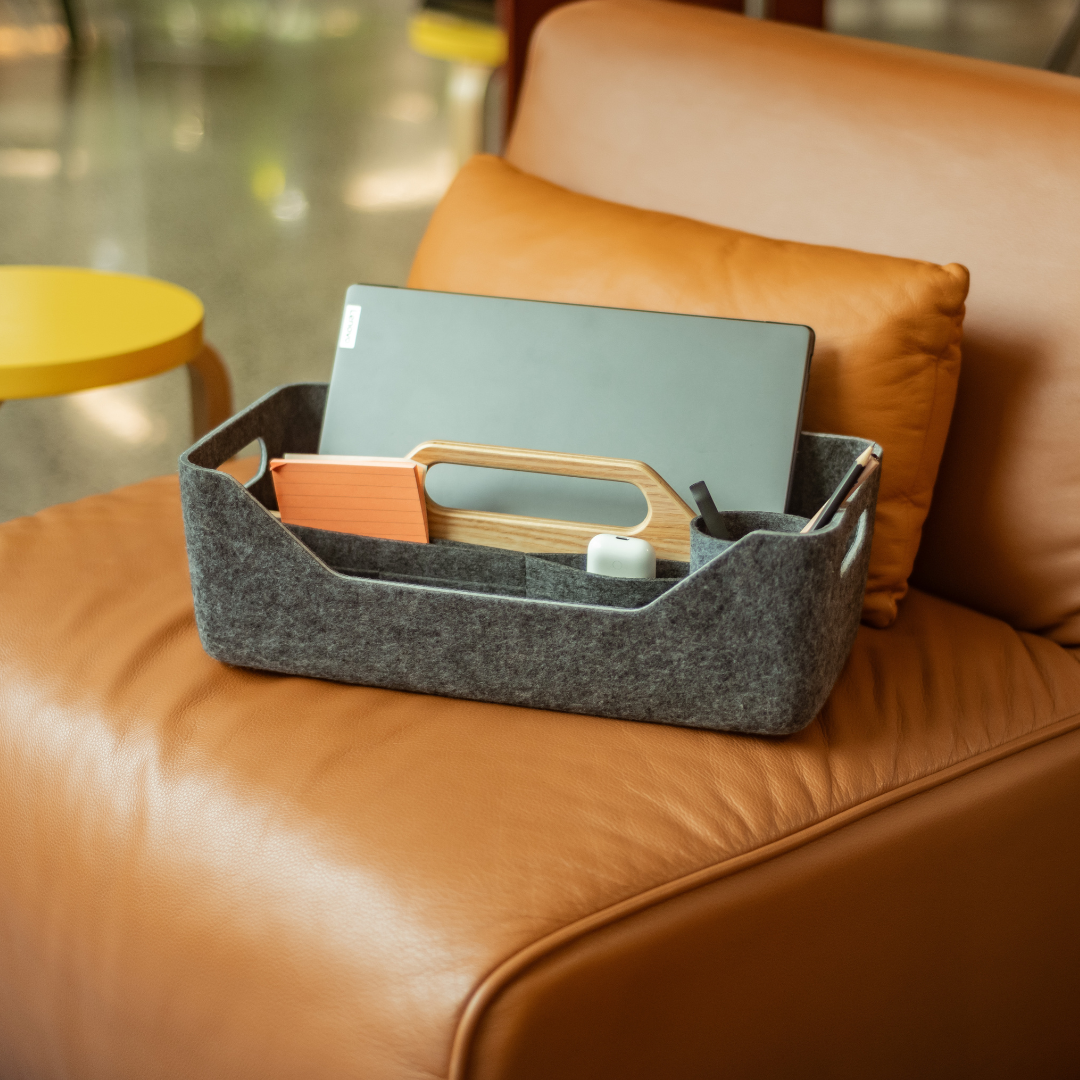Desk Sharing: The flexible office
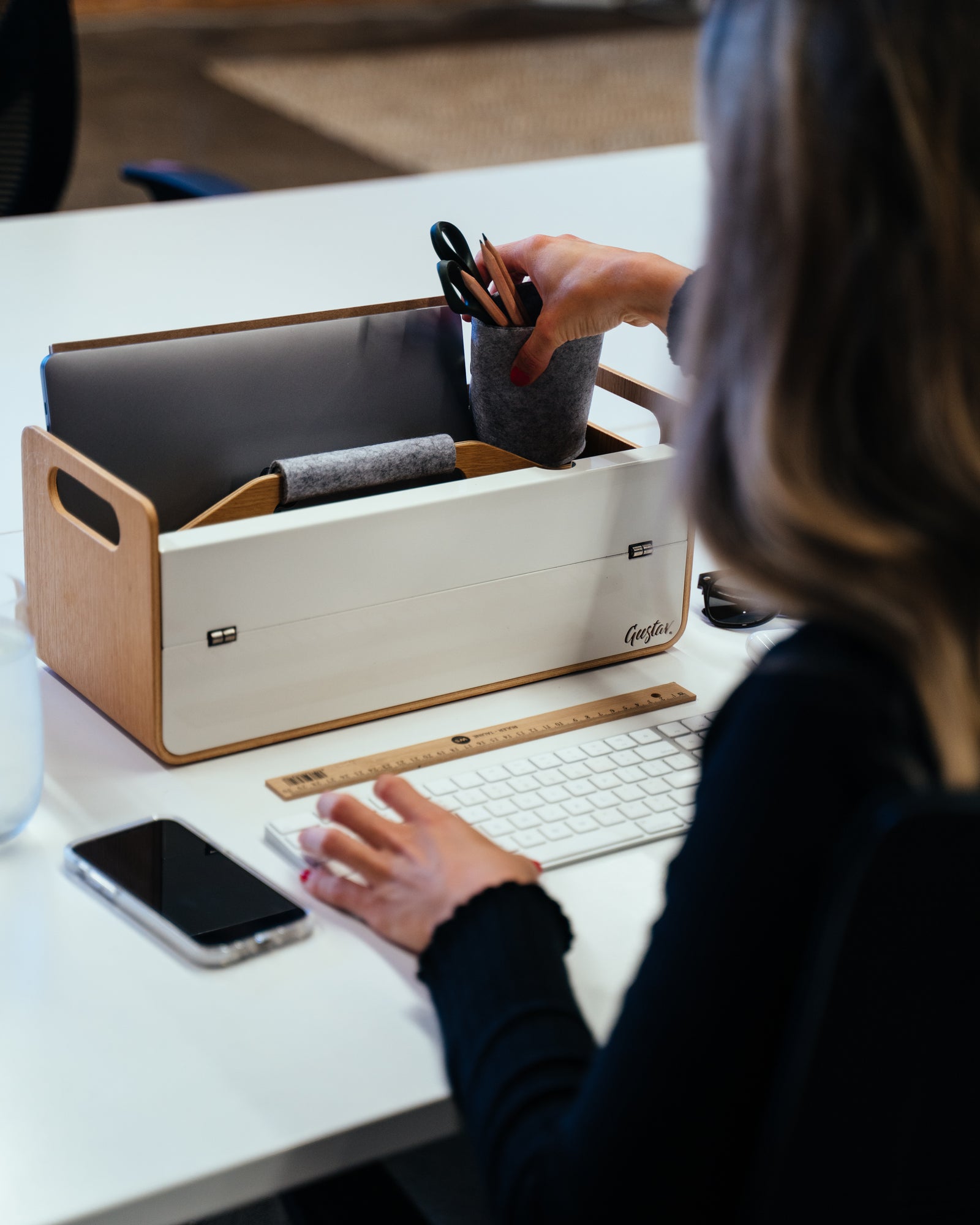
Desk Sharing? We hear this word more and more often. But what exactly does Desk Sharing mean? Is it a rigid concept? And do shared desks with colleagues make sense – or is it just the latest, but certainly not the last, trend for modern working?
The modern workplace has been researched, tried out and implemented for a long time: Open-plan offices, retreat cubicles, smaller office rooms, home offices... Depending on the industry, company and country, there are entirely unique approaches, which sometimes develop faster, sometimes slower. But a historical event activated the turbo: the Corona pandemic. New Work, hybrid working – these were no longer buzzwords; they were suddenly a reality.
Since then, an overwhelming number of office employees worldwide have taken it for granted that at least part of their work will be done at home or on the road. This has impacted the office: Many workplaces are deserted, and some rooms stand empty. For employees sitting in the office, the empty desks are not much motivation. And for the company, a large office that is half empty hardly makes economic sense.
The fixed desk is a thing of the past
So, companies are reacting; they want to save and optimize. To deskshare, or Desk Sharing is one approach here: With fewer desks and workstations, smaller premises can be rented – or space is freed up for other things, such as quiet retreats or places for social exchange. So, there are no longer fixed assigned desks for each employee. When you come into the office, you have to find a new workstation each time, where you'll spend the day. The deal is that we can work from home more often.
But for desk sharing to work really well, it's essential for a company to have employees on board. Their needs for productive work must be considered, their motivation must be maintained, and good communication must be made possible. An accomplished fact is therefore not very effective when it comes to restructuring the workplace and, in the worst-case scenario, creates lasting resentment.
There is no one model – but a concept is needed
Removing half the desks or moving to a smaller office is not enough. Desk-Sharing is not a rigid, simple model that can be implemented within a day -there is no one-size-fits-all recipe for every company. The number of employees, organizational structure, team units, the nature of the work and the individual characteristics of the employees requires a customized concept. And this should be developed together with the workforce.
- New Work means New Possibilities. Modern technologies and spatial concepts help implement successful desk sharing that employees receive well. Desk sharing software allows individual team members to book their seats in advance and ensures that those who log in or show up at the office a little later are at a disadvantage.
- Do not share individual objects and devices: Headsets, keyboards, mice, tablets: these are mostly personal objects that employees do not necessarily want to share – also a matter of hygiene, which is especially central in pandemic times. So these items should be wireless and stored by team members in an individual, easy-to-carry box or cabinet like Gustav. That way, nothing gets lost, and the cleaning staff is happy to have the free space.
- Office furniture should be easily adjustable: Users must be able to adjust the height of a chair or monitor themselves quickly. Light sensors provide automatic illumination of a desk that is currently in use. Arriving at the desk should not be associated with countless annoying hand movements. A good desk sharing concept keeps an eye on the entire daily routine and the various activities of the teams.
- Clean desk and space for private things: Of course, especially with shared workstations, it is also important to pay attention to security. With a clear, clean desk policy, each office prevents sensitive information from being accessible. Logging off at the computer and removing all paper documents protects data and ensures a neat and tidy desk, which is probably essential to everyone when desk sharing.
In all the planning and thinking about technology, equipment and desk orientation, there's one thing you can't forget: Employees are individuals with personal lives. Photos of their children, vacation postcards from colleagues, cactus or scented hand cream. There has to be room for these things. An office that is oriented toward desk sharing must not forget the personal touch. It needs to consider where and how private things can be integrated in the office.
The advantages of desk sharing...
- A new concept for workplaces is also a new opportunity to reduce hierarchies. Communication between management levels becomes more open and straightforward. Is the large corner office with the top view no longer reserved for the boss alone? That's an important sign. And the poorly lit desk with its back to the door is no longer reserved for the intern? Perhaps the unappreciated desk is gone altogether, and the intern is presently sitting in a bright, beautiful workspace with nice colleagues.
- It's no secret: desk sharing means fewer desks and less space. This goes hand in hand with substantial savings in operating expenses. This makes it easier to manage in challenging times – and the company can instead invest in other employee benefits that the team values much more these days.
- When companies in a wide range of industries desperately seek qualified personnel, Image matters. What kind of company do you want to be for potential employees? Dusty, old-fashioned, rigid? Or future-oriented with a view to the actual needs of a team in times of hybrid work? Desk sharing is a clear signal for the latter. So in your employer branding activities, feel free to mention your desk sharing model.
- Definitely to be mentioned as a benefit of desk sharing: employee satisfaction. Plan the office changes cautiously and listen carefully to the suggestions and needs of your employees. You can save money with desk sharing and enable the entire team to work in a motivated manner in the long run.
- Empathy, creativity, flexibility: Using different workplaces means constant change. We understand the perspectives of our colleagues better, can react better to new circumstances and stimulate our creative abilities every day.

...and the disadvantages?
- Time consumption and less productivity: If we have to constantly clean up, search for workstations and fight over the best desks, we are certainly not efficient, motivated and productive. A clear concept is therefore urgently needed.
- Insecurity: Many employees perceive a new workplace model as a threat. What happens here? After my fixed desk is gone, will I be next? Employers need to communicate clearly with their teams and show them that desk sharing can positively change the company and the workforce.
- Competitive workplace selection: It doesn't take long to get back to a regular job. Some employees come to the office extra early. Others use the new booking software to block the space for themselves until 2053. Disputes over a desk should be avoided at all costs – with fair allocation, clear rules and a booking system that prevents discrimination.
- Reduced team cohesion: A fear that can come true with poor planning. You no longer have your favourite colleague sitting next to you every day, and the typical flow of information in a team or room is now altered. Regular meetings (real or virtual) and modern communication tools are important to avoid employees feeling excluded, isolated or insufficiently informed.
Conclusion: How desk sharing works as the future of work
Desk sharing has long since arrived in many companies, industries and departments. It is essential not to be afraid of change but to see the great opportunities. With a clear model that integrates the ideas and wishes of the team and clear rules that apply to both boss and intern, desk sharing benefits the company and all employees.


